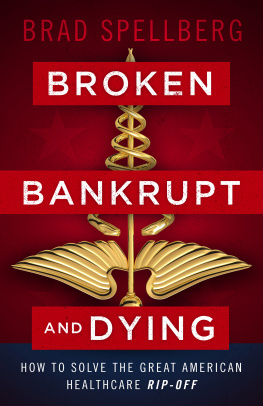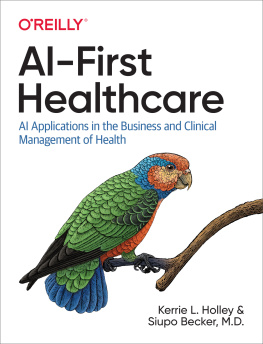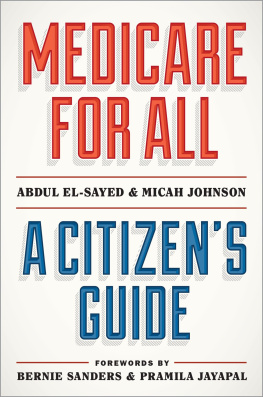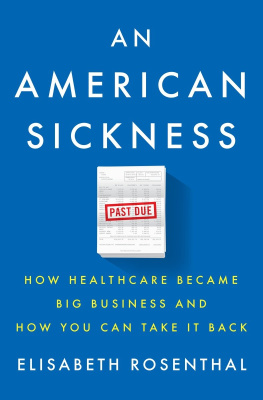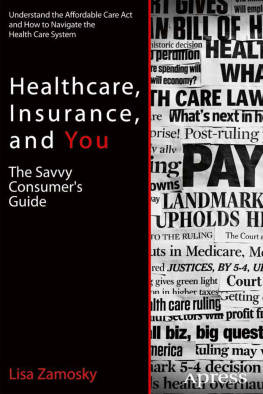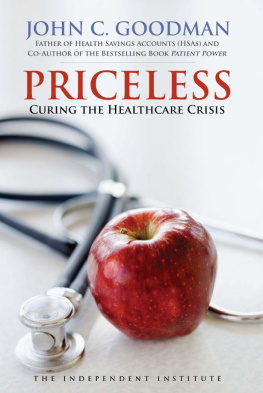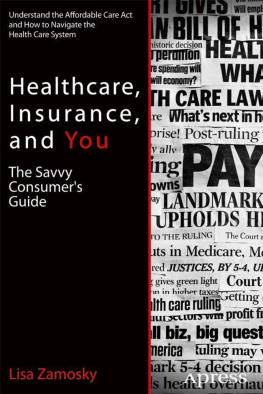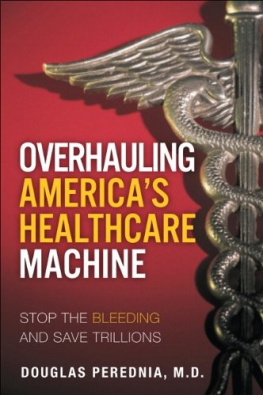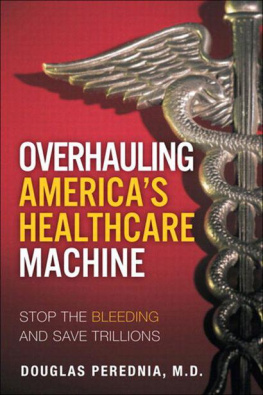All rights reserved.
This book is dedicated to Catherine and Michael, who give your parents purposeto leave the world a better place.
The opinions expressed in this book are the authors alone and do not represent those of his employer (the County of Los Angeles) or academic affiliate (University of Southern California).
The patient stories in this book reflect real experiences of the author. Details have been changed to assure patient anonymity and enable narrative clarity.
Foreword
I am pleased to introduce Broken, Bankrupt, and Dying , by Dr. Brad Spellberg. I have known Brad for many years as an esteemed colleague and friend and have been constantly impressed by his presence as the Chief Medical Officer of a large academic safety - net hospital, a respected researcher, author, and erstwhile policy wonk, among other things.
When he told me hed written a new book, I was only a little surprised. After all, even the busiest doctor/administrator/lab researcher has to find something to do at 4:00 a.m. when insomnia kicks in. When he told me what the book is about, all I could say was, Sounds like what Ive been saying for the last decadeat least youve written it down!
Healthcare is complicated, and healthcare policy and economics can be very difficult to understand. The debate about healthcare in the United States rages onoften becoming a political footballengendering highly partisan arguments, but rarely truly resolving these questions. If you are looking for a solid introduction to some of the key problems we face in American healthcare, without the partisan political rhetoric, this book is an excellent start by focusing on the practical win - win possibilities, rather than ideological arguments.
There are many concepts in healthcare policy that are complicated, but at least one is fairly simpleif youre going to pay for something, you should at least get your moneys worth! This book explains in relatively simple terms why thats not true for the American healthcare system, why we should be bothered by it, and what we can do to fix it.
As Brad explains, despite the fact that many Americans insist that we have the best healthcare system in the world, it isnt true by most measures. Because of the hodgepodge system that we have let develop over time, the American healthcare system does not serve everyone, and the people that it does serve, it does so at a high cost. The thing that Americans should ultimately take offense to is not that our healthcare system costs as much as it does, but that it provides terrible value for doing so. And people die because of it. Fundamentally we have been paying Rolls - Royce prices for Kia - level luxury, and it doesnt have to be that way.
Brad then builds the case, piece by carefully constructed piece, for an optimal solution. That solution is probably somewhat different from some of the plans youve heard prominent politicians talking about. He walks us through the alternatives, including their pros and cons, and makes a strong plea for engagement. There are few individuals in the country who, when asked, will tell you that our healthcare system isnt broken. Nonetheless, we still struggle with the political willpower to make necessary changes to make our healthcare system effective and sustainable. If we want these changes to happen, we must rely on the power of the public to demand action.
We can actually make a better healthcare system, but to do so, we need all of us to understand the problems well enough to ask for the right solutions. This book will help put people on the path to that understanding.
Arun Patel, MD, JD, MBE, FAAP
Director of Patient Safety and Risk Management
Department of Health Services
Los Angeles County
Former Staff, US House Committee on Energy and Commerce
Introduction
The US healthcare system is the greatest rip - off perpetrated on the American people in the last century.
Its a powerful assertion, perhaps even off - putting . But it is an assertion born of substantial, objective data. As I will show you, Americans have overpaid for healthcare to the tune of trillions of excess dollars in taxes and lost wages compared to people who live in other countries. And Americans live shorter lives than people in those countries. Its hard to describe paying trillions of dollars more for health while dying younger than everyone else as anything other than the greatest rip - off of the last century.
In polls of prospective voters, Americans list healthcare as the top domestic agenda item that they want to see the government fix. Patients and their families are fed up with their continuously rising healthcare costs, which force them to choose between receiving care and eating or paying rent. And healthcare workers are fed up with mind - numbing insurance authorizations, relentlessly rising paperwork burdens and Byzantine care networks.
We are at a crossroads. Americans have choices to make about what to insist on from their elected officials. But people are confused about which healthcare plan would be best able to meet our national needs by lowering costs and improving outcomes. Thats where this book comes in.
Indeed, as we will see, it is not clear that any of the commonly discussed plans to fix US healthcare are exactly the right solution. They all have strengths and weaknesses. But, most importantly, they all may have sufficient detractors to preclude practical implementation. International models point the way to a sort of compromise between proposed models, which can allow us to achieve universal healthcare coverage while retaining choice for the public.
And we can do this with improved healthcare outcomes at a markedly reduced cost. We can even do this while benefitting corporate competitiveness by relieving businesses of the crushing costs of employee health insurance benefits. Think it cant be done? Keep reading. Ill show you that we actually know it can be done. Because systems like this already exist elsewhere in the world.
One of the central premises that I will be laying out for you is that the problems in our healthcare system are not the fault of one person or one group. The blame cant be laid at the feet of corporate greed any more than hospital ineptitude, physician inefficiency, or patient noncompliance. The fault lies within the system itself.
The US healthcare system needs to be redesigned. Or rather, it needs to be designed in the first place. Because as I will explain, the healthcare system we have now is an accidental outgrowth of efforts to combat post - World War II inflation. It was never purposefully designed to deliver healthcare. Yes, seriously. No, Im not making that up.

